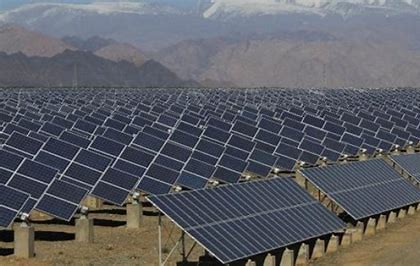FCT Unveils Nigeria’s First Solar-Powered Farmers’ Market in Abuja
FCT Unveils Nigeria’s First Solar-Powered Farmers’ Market in Abuja
By Achimi Muktar
In a bold move to revolutionize local food distribution and empower farmers, the Minister of State for the Federal Capital Territory (FCT), Dr. Mariya Mahmoud, has unveiled a groundbreaking solar-powered farmers’ market in the heart of Utako, Abuja.
Dubbed the first green, solar-powered market in the FCT—and arguably Nigeria—the project spans over 3,000 square meters and boasts 50 modern lock-up shops, 40 informal stalls, and seven spacious warehouses, all powered by clean, sustainable energy.
At the commissioning on Friday, Dr. Mahmoud described the market as more than just a place to buy and sell. “This market is a game-changer. It eliminates middlemen, slashes post-harvest losses, and gives farmers a direct line to buyers,” she said. “It’s a hub of empowerment, innovation, and agricultural excellence.”
Executed by the Abuja Investment Company Limited (AICL), the project is the result of a successful public-private collaboration aimed at reshaping food systems, boosting rural incomes, and strengthening food security in line with President Bola Tinubu’s Renewed Hope Agenda.
Mahmoud lauded the FCT Administration under Mr. Nyesom Wike for staying committed to people-centered and sustainable development. She also called on farmers and traders to take ownership of the facility, use it as a launchpad for agribusiness, and drive inclusive economic growth.
“This is a call to action,” she added. “Let’s build a resilient economy—one that gives our local farmers a voice and ensures quality produce reaches every household in the territory.”
Innovation Meets Sustainability
The Group Managing Director and CEO of AICL, Amb. Maureen Tamuno, revealed that the market is not just a marketplace—it’s a statement of intent.
“This is the first solar-powered green market in the FCT, and one of the first of its kind in Nigeria,” she said. “It’s built to meet Sustainable Development Goal 11, which calls for inclusive, safe, resilient, and sustainable cities.”
Tamuno emphasized that the solar infrastructure would allow traders to extend business hours and reduce losses from spoilage—especially for perishable goods like fruits, vegetables, and dairy.
“We’re talking about a clean, reliable power source that keeps produce fresh, increases profits, and supports small-scale businesses. This market is the future.”
Feeding the City, Sustaining the Planet
Beyond economic benefits, the Utako Farmers’ Market represents a shift in urban development—towards sustainability, clean energy, and climate resilience. It reflects a growing commitment to environmental responsibility, as Abuja pushes to become a world-class green capital.
“This is about more than just shopping,” Tamuno concluded. “It’s about creating an ecosystem that benefits everyone—from the farmer in the field to the family at the dinner table.”
With farmers and vendors already expressing excitement about the opportunity to sell fresher goods in a cleaner environment, the solar-powered Utako market may just become the model for future markets across Nigeria.
One thing’s for sure: the era of spoiled tomatoes and early market closures may soon be a thing of the past.





















